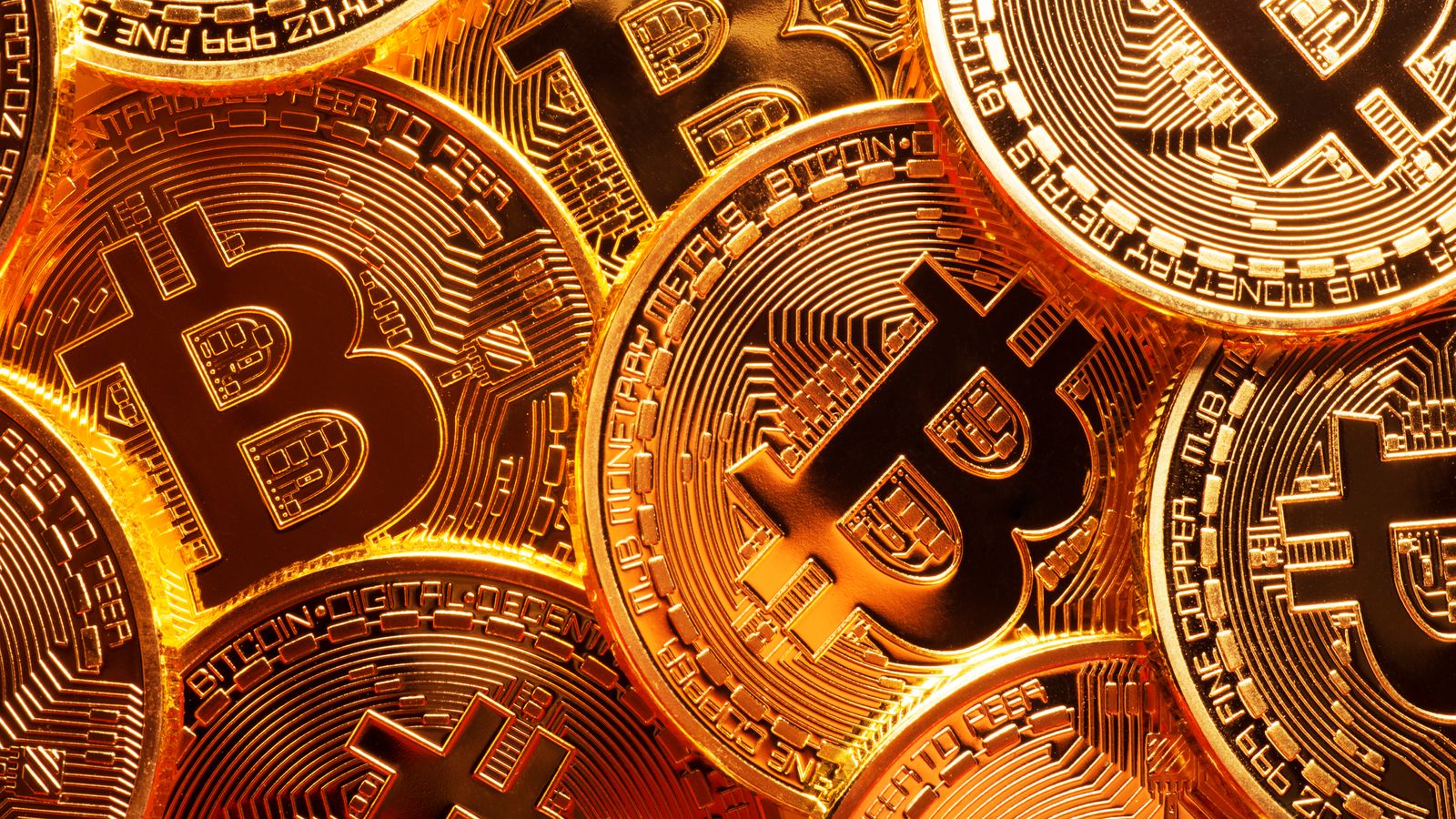Cryptocurrency values are taking a further pounding amid a resumption in a wider flight from risk over growing fears of an inflation-driven global recession.
A meltdown in the value of a so-called stablecoin, TerraUSD, was widely blamed for stoking a sell-off in crypto assets that saw Bitcoin hit a 20-month low at one stage on Thursday.
The largest cryptocurrency by market value hit a low just above $25,400 after TerraUSD broke its peg to the US dollar.
The stablecoin – so named because such digital tokens are pegged to the value of traditional, regulated assets – plunged in value late on Wednesday, sending shockwaves through other such assets including Tether, which also broke its link to the US currency.
In Bitcoin’s case, it has lost almost two-thirds of its peak value of $69,000 achieved last November.
Its demise has tracked that of so-called growth, mainly tech, stocks on Wall Street.
While the likes of Amazon, Meta (Facebook’s owner, Alphabet (of Google fame) and Tesla led Wall Street’s rally from the pandemic lows in 2020, they have since borne the brunt of a sell-off this year as their returns and valuations are discounted more deeply when interest rates go up.
Cost of living: Inflation takes toll as UK economy contracts in March
Sunak was already under pressure from the cost of living crisis – the GDP figures might force him to make a major intervention
‘No option is off the table’ when considering windfall tax on oil and gas firms, Rishi Sunak says
The Federal Reserve signalled an aggressive path ahead for rate hikes – likely to mirror this month’s 0.5% increase across several meetings this year – in a bid to tackle rising inflation.
The prospect of such tightening in the months to come has also sent the dollar to 20-year highs – with the pound at a two-year low below $1.22 – but it has also raised fears that the US economy will suffer as borrowing costs go up.
Despite the Bank of England warning there was a risk of recession ahead for the UK economy last week, it continued its bid to keep a lid on inflation expectations by raising Bank rate for the fourth time in a row – to hit 1%.
COVID lockdowns in China have added to the economic jitters as disruption in the global supply chain also threatens to fuel inflation further down the track.
It is already being driven by demand outstripping supply and the effects of Russia’s war in Ukraine – hurting risk appetite.
Among the latest developments to damage sentiment was a warning from Germany that Russia was now using energy as a “weapon” as Moscow said it would halt gas flows to the country via its main pipeline through Poland.
Asian markets set the tone on Thursday for stocks, with the FTSE 100, DAX in Germany and Paris CAC all falling by more than 2% at one stage.
The tech-heavy Nasdaq – which has lost more than 25% of its value this year – was down by a further 1% in a broad-based sell-off.
Susannah Streeter, senior investment and markets analyst at Hargreaves Lansdown, said of the market meltdowns: “Fears about rampant inflation and the abrupt ending of the era of cheap money have sent cryptocurrencies careering down a cliff edge, as investors scuttle away from risky assets.
“Crypto fans, lulled into a false sense of security amid sharp price rises during the pandemic, are now facing a rude awakening with assets plunging across the board with Ether down by just under 20% since yesterday, despite notching up a slight recovery in the last few hours.
“Bitcoin has crawled back up from its low of $26,000 reached early today, and is currently trading a nudge above $28,000 but it’s down 20% over the last five days.”






















